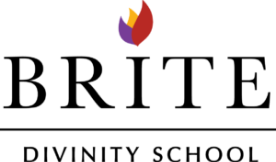Successfully responding to physical, behavioral or emotional health concerns generally requires a student’s full attention and withdrawal from enrollment, student housing, or non-curricular activities may be necessary. The Office of the Dean (including the Assistant Dean of Common Life and the Associate Dean for Academic Affairs) is designated by the Divinity School to assist students in the withdrawal process; when appropriate, the Dean may act on Brite’s behalf to withdraw a student who is determined to be a direct threat to self or others.
In accordance with the Clery Act (http://www2.ed.gov/admins/lead/safety/campus.html) Brite Divinity School works closely with the TCU police department in responding to matters of safety and concern. (www.police.tcu.edu).
This policy and associated procedures do not take the place of appropriate disciplinary action in response to breaches in the Student Code of Conduct, other Brite policies related to Title IX or harassment, or other regulations. Students voluntarily withdrawing may be subject to disciplinary procedures if conduct violations are shown to have occurred. The administrative withdrawal policy may be applied at the discretion of the Dean in extreme circumstances in which, at the discretion of the Dean, the regular disciplinary system cannot be applied or is not appropriate.
Procedures Related to Violations of the Code of Conduct Due to Harm to Others, Mission, or Disruptive Behavior
Definitions
Harm to others—including but not limited to verbal threats or behaviors indicative of disruption, intimidation or violence toward other persons; behavior that places other students at risk or exposure to any reasonable threat to their health/safety or academic pursuits; behavior which may be unintentional or indirect but which impacts the rightful expectation of each student to an academic and/or living environment that is conducive to academic pursuit.
Harm to the academic mission—including but not limited to threats or behaviors which would cause significant damage to any Divinity School property; behavior that disrupts the academic and/or residential living communities and impedes the educational mission; and behaviors that impede the lawful activities of the Brite community members or which interfere with the orderly functioning of the Divinity School. This may include disruptive behaviors in classes or during Brite-related activities.
Disruptive Behavior – including but not limited to conduct that substantially interferes with or obstructs the teaching or learning process. Civil expression of disagreement with the course instructor, during times when the instructor permits discussion, is not itself disruptive behavior and is not prohibited. When any student, acting individually or in concert with others, obstructs or disrupts, or attempts to obstruct or disrupt any teaching, research, administrative, disciplinary, or public service activity, the student may be asked to stop the disruptive behavior by an instructor or staff of the Divinity School. If the student continues, an instructor/staff member is authorized to tell the student to leave the area or classroom and, if the student will not leave, to call campus police. The incident should be reported to the Dean’s office as soon as possible.
Procedures
If a student, staff or faculty member believes that a threat of harm to self or others is imminent, immediately contact the TCU Police Department, or call 911. Do not take time to notify others; proceed directly to contact with the Police. Once the Police have been called, please contact the Dean’s office as soon as possible.
If the threat is less imminent, the Dean may advise a student to withdraw. If in the discretion of the Dean, information or circumstances show that the student may pose a direct threat to self or other members of the Brite community, the Dean is empowered administratively to withdraw a student in the immediate interim, pending a medical assessment, and any other relevant information. In such cases, the Dean will move expeditiously to meet with the student in a timely manner regarding a final determination. In cases when the Dean is unable to meet promptly with a student the Dean may designate a faculty or staff person from the Divinity School to meet with the student on the Dean’s behalf and/or to carry out some of the following procedures.
Upon learning of allegations of disruptive, threatening, or harmful behavior, the Dean or the Dean’s designate will initiate the following procedures in order to determine the facts:
The Dean or the Dean’s designate will notify the student of the general concern, and will then schedule a mandatory meeting with the student.
In the meeting, the student will be apprised of the specific nature of the Divinity School’s concerns and afforded the opportunity to discuss the reported behavior and/or circumstances at issue.
The Dean or the Dean’s designate may confer with other resources (i.e., health care providers, Campus Police, housing director, academic colleagues, etc.) or others as appropriate to the circumstances.
Upon consultation, the Dean or the Dean’s designate may require an evaluation of the student’s behavior and any relevant physical/mental conditions by an appropriate medical professional if the Dean believes that an evaluation will facilitate an informed decision. This evaluation may be done by physicians/counselors from Texas Christian University, or by outside health professionals, including the student’s treating health professional, as indicated and appropriate in the Dean’s judgment. If so required, the Dean may further require the student waive confidentiality in writing.
The Dean will carefully review all of the relevant information. If a designate has collected information, the designate will provide that information to the Dean. A designate other than the President will not be involved in the process after this point. Following review of the information the Dean will notify the student of the findings and may, at the Dean’s discretion withdraw the student.
The Dean may, however, conclude that with specific support, a student can continue enrollment, attend academically-related activities and/or live in residential housing. In this case, the Dean will indicate, based on the best professional advice, specific conditions or expectations that must be met in order to remain enrolled. These include, but are not limited to required treatment, damage charges (whether fines or restitution), education and/or counseling when there is a question of self-care or risk to the student community. Non-compliance with such conditions/requirements will result in an administrative withdrawal from the Divinity School or disciplinary action.
When after careful review of all relevant information the Dean concludes that an administrative withdrawal is in the best interests of the student and/or the Brite community, and the student has refused the option of a voluntary withdrawal, the Dean may impose an administrative withdrawal based on information gained during the inquiry.
The Dean will inform the student of her/his decision and give the student written notice of an administrative withdrawal, including the beginning date and duration of the withdrawal.
The Dean will also discuss the procedures for submitting any documentation that may be required for return to the Divinity School, including the requirement for clearance procedures for hospitalizations and/or withdrawals relating to medical or behavioral health issues.
The student will leave campus within the time frame established by the Dean in the written notice. If the student refuses to comply with an administrative withdrawal, the Dean may consider immediate disciplinary action and/or request that the student be escorted from the Divinity School property by an appropriate party.
Decisions about campus security will be done in collaboration with the TCU Police, including the possibility of issuing a “no trespass warrant.” In such cases, the student may not visit the Brite or TCU campuses without the prior authorization of the TCU Police.
Students withdrawn for medical and/or behavioral health issues must receive clearance before returning to Brite, which may include medical clearance.
At any time in the process, the student may elect to withdraw voluntarily. Decisions under this policy may be appealed to the President of the Divinity School
Appeals Process
A student may appeal the Dean’s decision under this policy to the President of the Divinity School. A withdrawal may remain in effect during the appeal, pending a decision from the President.
In the event a student wishes to appeal, the following steps apply:
The student must submit a written letter of appeal to the President within five business days of receipt of the Dean’s withdrawal decision.
The appeal must state the following:
The specific reason for the appeal, i.e. lack of due process, procedural error, etc.
Any evidence supporting the grounds for the appeal, i.e., contrasting medical or professional opinion, etc.
After reviewing the written appeal, the President of the Divinity School may meet with the student to gain further understanding of the situation, and/or clarify any questions the student may ask.
The President will consult with the Dean and or other officials and review all pertinent information utilized in the withdrawal decision. The President may require a waiver of confidentiality from the student if deemed necessary.
The student will be notified in writing of the President’s decision within ten business days of receipt of the appeal.
The President will notify the Dean of the decision, indicating any modifications or amendments to the initial finding, if any.
The decision of the President will be final.
The President of the Divinity School has purview over the appeal process. If the President is unavailable to decide any appeal, he or she may appoint an appropriate professional to act in his or her absence.

